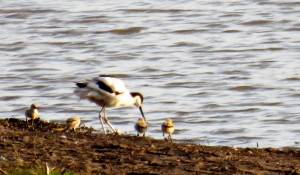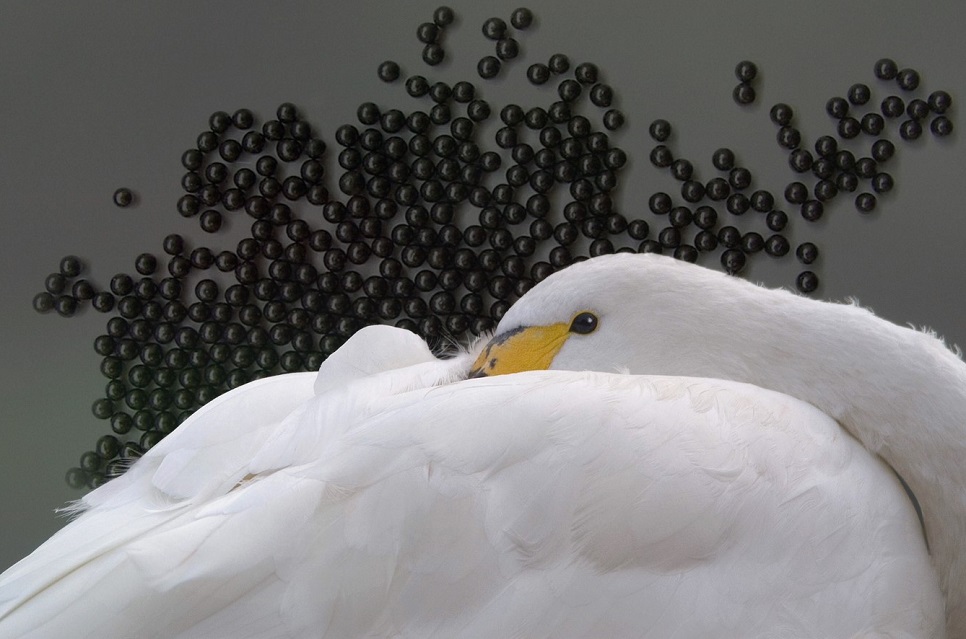Somerset locals celebrate rare chicks

Steart locals are celebrating a rare arrival for Somerset – a brood of four avocet chicks.
It’s only the second time that avocets have bred in Somerset for over 170 years.
The fluffy grey chicks hatched two weeks ago on a specially-designed island at WWT Steart Marshes.
They nested on one of several gravel topped islands that were designed by WWT to encourage ground nesting birds and funded by Taunton-based environmental trust, Viridor Credits Environmental Company, through the Landfill Communities Fund.
WWT reserve manager Alys Laver said:
“Steart Marshes was only finished last September, so for avocets to choose to breed here is quite a blessing and we’re absolutely delighted!
“The local volunteer wardens have kept an eye on the family as mum and dad helped their chicks venture out for their first swim. Their island home is a little way away from the footpath along the bank of the River Parrett, but anyone should be able to see them with a pair of binoculars and a little patience.
“We created the islands as a place for birds to nest in safety and they have proven really successful. As well as our avocet family, they’ve also been used by two families of little ringed plover and two families of oystercatcher.”

WWT Steart Marshes is the result of the UK’s biggest ever coastal realignment scheme, which helps manage flood risk for 100,000 homes and businesses in the Severn Estuary.
The sea was allowed onto several hundred hectares of the Steart peninsula for the first time last September. Since then it is rapidly turning into saltmarsh, a habitat that’s important for farming, fishing and wildlife but is under severe threat from rising sea levels.
Local villagers from the area have been at the heart of the project. They helped the Environment Agency and WWT shape its design and many are still closely involved with the running of Steart Marshes.

